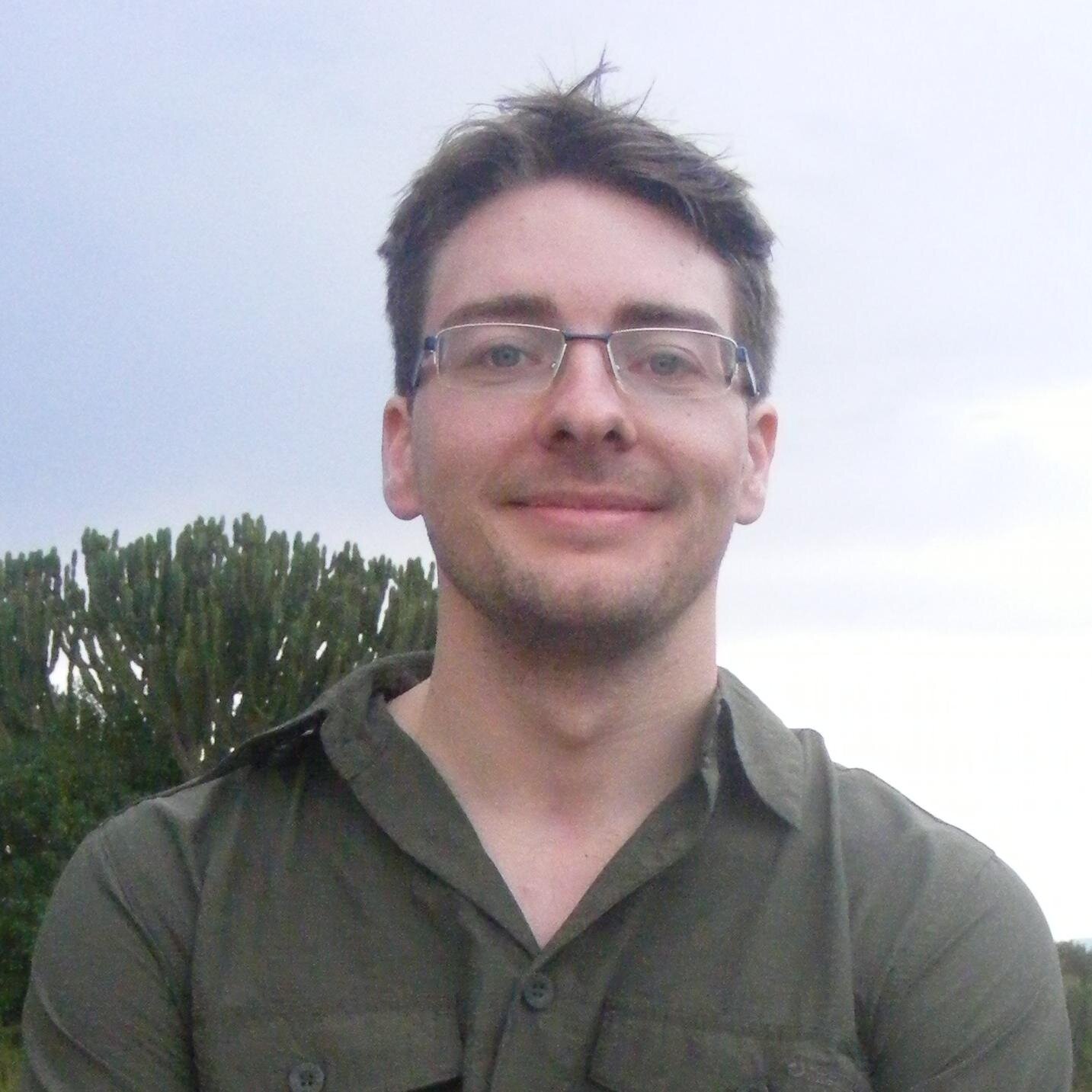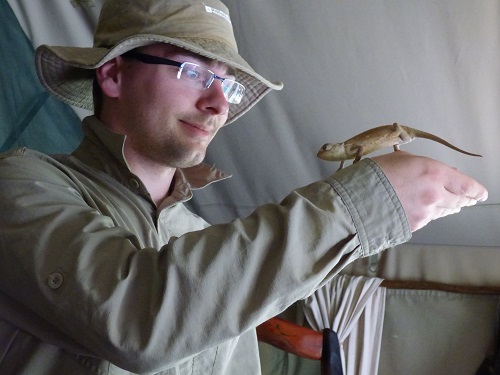About the department:
Swansea University's Department of Biosciences is an incredibly friendly and supportive research environment situated right beside beaches and coastline designated as Areas of Outstanding Natural Beauty. The Department has heavily expanded in the last few years and contains a high proportion of early career faculty which creates an energetic and intellectually stimulating institution.
About the research:
My lab aims to understand the origin and evolution of biodiversity, focusing on venomous and poisonous animals, and takes a phylogenetic comparative approach to a diverse range of evolutionary questions. Broad areas of research include the evolution of venomous animals and their venoms, the association between organismal traits and evolutionary diversification, the behavioural ecology of antipredator defence, and convergent evolution. However, my research has ranged from exotic animal husbandry to human behavioural ecology as I maintain a multidisciplinary approach. My work involves a wide range of vertebrate and invertebrate study systems, but has a particular focus on amphibians and reptiles.
What has been the biggest challenge as a new PI so far?
Coming straight from my PhD, and despite gaining as much teaching experience as possible beforehand, the drop in research time available due to other teaching and administrative duties has taken a while to become comfortable with.
How have you prepared to be a PI?
My career has largely been guided by 'do what interests me', so focusing on my own research interests and building collaborations around these, as well as developing experience of teaching has incidentally prepared me for the role.
How do you/will you approach mentoring new lab members?
I spend a lot of time emphasizing to undergraduate students the basic fundamentals of how science works and what doing science is like, using examples from my own experience. I tend to consider postgraduate students (especially PhD students) more as less experienced collaborators than as students, which contributes to a friendly and open environment. I believe this more personal approach helps to develop students as well-rounded scientists and people.
Are you recruiting? If so, how do you/ will you choose new lab members?
No funded positions are available at the moment, but I'm always happy to support fellowship applications to join my lab. I consider research achievement and potential of course, but I also think it is key to try and ensure that we get on, as this helps maintain an open and friendly lab environment.
When and why did you become a SSE member?
I joined SSE in 2010 at the tail-end of my undergraduate degree, mostly to keep up to date with key literature in evolutionary biology, but also to take advantage of the many other benefits of the society.
What does becoming a SSE member mean to you or your career?
I am strongly in favor of supporting scientific societies so membership in itself is something I encourage as it maintains a sense of community in the field.
When was your first Evolution Meeting, and how did it affect your career?
My first Evolution meeting was the joint meeting in Ottawa. This had a huge impact on my career as it was the first large conference I had attended and my PhD supervisor, who went with me to the meeting, was excellent in introducing me to many key people in my field. This has led to additional networking opportunities and in some cases publication resulting from chats at other Evolution meetings.
If you could meet one other SSE member for the first time, who would it be and why?
I have tried to meet as many people as I can at Evolution meetings in particular, but Stacey Smith is one person who I admire for her clarity of explanations and enthusiasm for the subject. This comes through especially in her fantastic introductory textbook with David Baum (Tree Thinking) which I use as recommended reading for my own macroevolution module.
Besides research, how do you promote science?
I have always been keen on outreach and public engagement, starting in a more organised way at 13 years old giving herp and invert demonstrations at a zoo. I now take as many opportunities as I have time for to do the same, including media interviews (radio, tv, and newspapers), taking part in national outreach events (such as 'I'm a Scientist'), producing popular articles for magazines, and giving popular science talks to public audiences.
Do you teach evolution? What is the hardest concept to teach?
Yes, I teach a second year module on tetrapod evolution and a final year module on macroevolution and phylogenies. The latter module has a partial partial focus on methods, so our students (biology, zoology, and marine biology) often struggle with more analytical concepts such as likelihood and others related to models.
Do you teach evolution? What concept blows students’ minds?
Students are often very surprised to learn that traits which are advantageous at the level of individuals might be detrimental at higher scales, so 'species selection' is a novelty for many of them.
How do you think evolutionary research benefits society?
I think we tend to put too much emphasis on the idea that all science needs to be immediately useful to humanity. Even most applications of evolutionary biology have their roots in basic research with no obviously applied slant (at least at the time it was carried out). This is often ignored or considered unimportant by funders and the public alike, and it's something we should emphasise more. That said, with a focus on simply understanding evolution we have tools and applications that arise from this alone, for instance some of my work on convergent evolution which can be used to predict susceptibility of native species to toxic invaders such as toads.
Do you have a time management tip to share?
Don't take on too much, learn to say no. I struggle with this myself but I've learned the hard way once or twice.
What book should every evolutionary biologist read?
There are many excellent books and the best depends on a person's interests (as with everything), but from a comparative biologist perspective I think Pagel and Harvey's classic 'The Comparative Method in Evolutionary Biology' is still a clear and readable introduction which can be built on.
What one piece of advice would you give to a starting graduate student?
Everything takes longer than you think it will and everyone gets more rejections than they can count, don't take it personally.
How was your first faculty meeting?
Surprisingly OK, our Department has a brilliant track record of meetings finishing on time or (usually) early, so this was a nice but unexpected finding.
Did you ever have something go wrong in a talk?
Absolutely, but my strategy is to make light of it and do what I can to deal with it at the time without adding any more disruption or delay than necessary.
Do you remember making any mistakes as a trainee; how did you recover?
Yes, failing to clearly link each datapoint in collated datasets to the literature source it came from. I now make much more of an effort to do this and warn my students about this problem as it's really embarrassing when you struggle to find the source again 5 years later!
What is something most people don’t know about you?
I play a bit of guitar, bass, and drums, and occasionally write music in a range of styles I listen to (from punk to 'classical'). I wouldn't say I do this at all well but it keeps me amused.
What do you enjoy doing in your free time?
Free time? Between my job and my 2-year-old I've almost forgotten what that is. Seriously though, my free time is mostly taken up with three things: reading, herping (or general natural history walks), and music.
 Kevin Arbuckle
Kevin Arbuckle